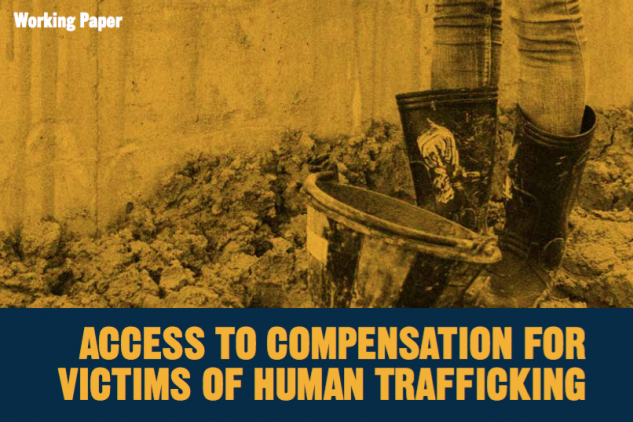
The long and winding road: barriers to accessing compensation for victims of human trafficking
Despite the introduction of the Modern Slavery Act last year, UK law still does not ensure access to legal advice or to compensation for victims of human trafficking, new Focus on Labour Exploitation (FLEX) research on Access to Compensation for Victims of Human Trafficking shows. Building upon research conducted by FLEX during the passage of the Act, the research examines the ability of victims of human trafficking and other forms of modern slavery to obtain much needed compensation, and finds significant gaps still remain.
The findings of this research indicate that one-year on from the enactment of the Act, little has changed for victims seeking justice who are still facing significant legal and practical barriers to obtaining compensation for the abuses committed against them. As such, FLEX concludes that the UK is in breach of its obligations under international and European law, and there is a strong potential for strategic litigation for victims unable to access legal aid or compensation under the existing routes.
In particular, the research found that while the Modern Slavery Act sought to protect the right of trafficking victims to free legal assistance for the purpose of claiming compensation, the way that the Legal Aid Agency has implemented this provision means that in practice victims of trafficking cannot exercise this right. As a result, few victims are able to access legal assistance for compensation claims, and lawyers are restricted in the number of cases they are permitted to bring on behalf of trafficking victims. This issue is currently the subject of a review by the Ministry of Justice, following a challenge brought by the legal charity, the Anti-Trafficking and Labour Exploitation Unit.
The research also found that the slavery and trafficking reparation orders introduced by the Modern Slavery Act are insufficient to address the gap in access to compensation for victims of trafficking, as they are only available to a small proportion of victims who have seen their traffickers convicted, and their assets confiscated. The vast majority of victims must instead try to obtain compensation through the civil courts, the employment tribunals or the Criminal Injuries Compensation Scheme (CICS), each of which present significant and particular problems for victims of human trafficking. For example, restrictive eligibility criteria for CICS means that victims of labour exploitation and victims who have been forced to engage in criminal activity are often rejected or have their awards reduced. Meanwhile, recent changes to the law on ‘unlawful deductions’ means that victims who may have been held in slavery for 10 or more years can still only claim up to two years of unpaid wages through employment tribunals.
These findings demonstrate that the Modern Slavery Act did not go far enough to ensure the right of victims of trafficking to compensation and free legal assistance. FLEX has therefore called for a comprehensive review of trafficking victims’ access to compensation in the UK. In particular, FLEX recommends the development of specific avenues to compensation for victims of human trafficking and modern slavery, to address the complex nature of these crimes and allow victims to access compensation more quickly and easily.
Access to compensation can play an important role in the recovery of survivors of human trafficking. Compensation awards can help victims move on with their lives and reduce their risk of further exploitation. Being awarded fair compensation can also provide a sense of justice and closure for victims, while also acting as a form of punishment for exploiters. By failing to ensure access to legal aid and compensation, the UK government is not only failing the victims of human trafficking, but is contributing to the widespread impunity that allows these crimes to flourish.
